Internal Medicine 2021
SCIENTIFIC SESSIONS & TRACKS
Track 1: Internal Medicine & Patient Care:

Internal medicine is the medicinal characteristic dealing with the prevention, detections, and treatment of adult diseases. Physicians specializing in internal medicine are called internists, or in Commonwealth nations. Internists are experienced in the management of patients who have multi-system disease processes. Internal medicinepatients are often seriously diseased or require complex examination; internists do much of their work in hospitals. Internists often have subspecialty interests in a disorder affecting particular organs or organ systems. Patient care is defined as the management of hospital facilities, assistance, and staff as per the therapeutic and nursing needs of the patient. Internists care for confined and ambulatory patients and may play an extensive aspect in teaching and research.
Track 2: Adult Diseases:
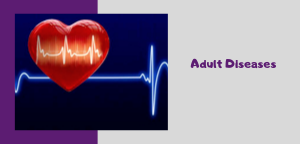
An adult disease being that can appear, but are not usually studied in the pediatric and child population: Schatzki's ring, Helicobacter pylori, cricopharyngeal achalasia, pancreatic carcinoma, achalasia, nasopharyngeal carcinoma, adenocarcinoma of the colon, malignant melanoma, thyroid carcinoma, renal cell carcinoma, leiomyosarcoma of the ovary and sarcoidosis, hydatidiform mole. Radiologists explaining pediatric or child imaging should observe these entities and perform a proper diagnostic workup.
Track 3: Allergy And Immunology:

Allergy and Immunology are related to the organization of disorders related to the immune system. These diseases are common to all ages of the people and surrounding various organ systems. Allergists/Immunologists are specialists, who will treat for these diseases. The Immunology Division offers coordinated multi-disciplinary administrations that range the controls of Allergy, Immunology, and Rheumatology. Sensitivity and immunology include the administration of scatters identified with the resistant framework. These conditions extend from the exceptionally normal to the extremely uncommon, crossing all ages and including different organ frameworks.
Track 4: Anesthesiology & General Surgery:
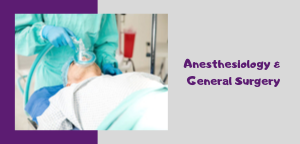
Anesthesiology is into ensuring the safety of patients undergoing surgery. The anesthesiologist cares for the patient to avoid the pain and distress they would otherwise experience. The anesthesiologist makes the patient to sleep. This allows patients to undergo surgery safely.
After the anesthesia, the surgery will happen. General surgeons are specialized in General surgery and they mainly focus on the stomach, small bowel, colon, liver, pancreas, gallbladder, appendix and bile ducts, and often the thyroid gland. This is why anesthesiology and general surgery are related to each other.
Track 5: Cardiovascular Medicine:
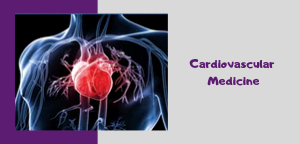
Cardiovascular Medicine study is the most comprehensive provider of cardiovascular services specializing in the prevention, detection, management, and treatment of adult cardiovascular diseases. Cardiovascular Medicine Conferences is a platform for postgraduate education and scientific work in the fields of cardiology, angiology, hypertension, cardiac and vascular surgery.
Track 6: Chronic Disease:
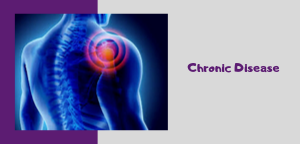
A chronic condition is a human health condition or disorder that is persistent or otherwise long-lasting in its effects or a disease that comes with time. The term chronic is often applied when the course of the disease lasts for more than three months. In medicine, the opposite of chronic is acute. A chronic study is further distinguished from a recurrent course; recurrent diseases relapse continuously, with periods of remission in between. Chronic conditions have often been used to describe the various health-related states of the human body such as syndromes, physical impairments, disabilities as well as diseases.
Track 7: Clinical Trials:
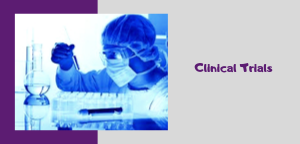
Clinical trials are observations or experiments done in clinical research. It includes biomedical or behavioral research studies on human participants to answer specific questions about treatments such as novel vaccines, drugs, dietary choices, dietary supplements, and medical devices. It generates data on efficacy and safety. Clinical trials are conducted only after they receive approval from the ethics committee in the country. These authorities are responsible for the benefit or risk ratio of trial and the approval does not mean the therapy is safe; it is that only the trial may be conducted. The cost of a trial is dependent on a number of factors. The sponsor for clinical trials may be a pharmaceutical company or government organization or medical device company. There are certain functions that are necessary to the trial include lab work and monitoring, managed by a central laboratory or contract research organization.
Track 8: Dermatology:

Dermatology is the branch of solution managing the skin, nails, hair and its maladies. The main skin illness issue influenced by skin compose, contingent upon the region. The vast majority of the lady’s experiences distortion and uneasiness related to skin issues influence them among the primary motivations to individuals look for restorative care.
Track 9: Diagnosis And Case Reports:
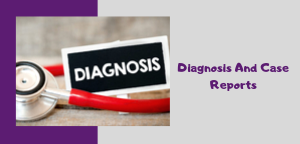
Diagnosis is the process of determining which disease or condition explains a person's symptoms and signs. Diagnosis is often challenging because many signs and symptoms are nonspecific. Thus differential diagnosis, in which several possible explanations are compared and contrasted, must be performed. This involves the correlation of various pieces of information followed by the recognition and differentiation of patterns. Occasionally the process is made easy by a sign or symptom (or a group of several) that is pathognomonic. The information required for diagnosis is typically collected from a history and physical examination of the person seeking medical care. Often, one or more diagnostic procedures, such as diagnostic tests, are also done during the process. Sometimes Posthumous diagnosis is considered a kind of medical diagnosis.
Track 10: Electronic Medical Record And Disease Management:
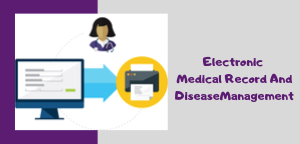
The electronic medical record refers to patient health information in a digital format. Records can be shared through enterprise-wide information systems or other information networks and exchanges. The electronic medical record includes a range of data that includes medical history, laboratory test records, vital signs, billing information, radiology images. Electronic medical record systems are designed to store data accurately and to capture the state of a patient across time. Due to the digital information being searchable in a single file, electronic medical records are more effective when extracting medical data for the examination of possible trends and long term changes in a patient. Disease management is defined as health care interventions and communications for populations in which patient self-care efforts are significant.
Track 11: Emergency Medicine:
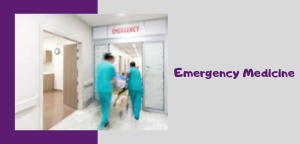
Emergency medicine is the medical specialty involving care for identical and unscheduled patient volunteers with injuries requiring immediate medical treatment. Emergency physicians are responsible for beginning examinations and interventions to investigate and treat patients in the acute phase including initial rejuvenation and stabilization, coordinating care with doctors from other specialties, and making opinions regarding a patient's need for hospital admission, examination, and discharge. Emergency physicians generally practice in hospital emergency departments, pre-hospital settings through emergency medical assistance and intensive care units.
Track 12: Endocrinology And Diabetes:
Endocrinology is a branch of medicine and biology, which deals with the endocrine system and its diseases. It also deals with specific secretions known as hormones. Endocrinology specializations include comparative and behavioral endocrinology. It is also concerned with growth and development, sleep, tissue function, respiration, digestion, mood, stress, excretion, lactation, behavioral and psychological activities of metabolism, reproduction and sensory perception caused by hormones.

Track 13: Epidemiology:
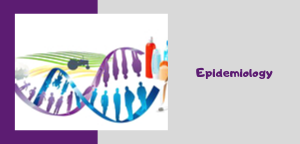
Epidemiology is the course and analysis of the patterns, source, and effects of health and epidemic conditions in specified populations. It is the keystone of civic health and shapes management decisions and data-based practice by identifying exposure factors for disorder and mark for precautionary healthcare. Epidemiologist’s assisted with study method, selection, and statistical analysis of evidence; alter interpretation and propagation of results.
Epidemiology has helped evolve the technique used in clinical research, civic health course and to a lesser intensity, basic research in the biological system.
Track 14: Family Medicine And General Practice:
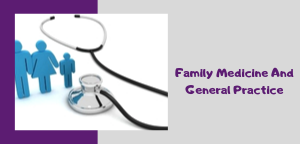
Family medicine (FM), family practice (FP) is a combined health care facility for people of all ages, generally, we named them as a family physician or family doctor in other places often called as general practice or General Practice Doctor (GP). Family physicians also manage chronic illness, from heart disease, diabetes, stroke, hypertension, cancer, and asthma etc. they also provide ongoing, personal care for the most serious health problems.
Track 15: Gastroenterology And Hepatology:

The study of gastroenterology and hepatology are often related to each other. A gastroenterologist is an internist who has completed specialty training in the treatment of the esophagus, stomach, small and large intestines, pancreas, gallbladder, and liver. A hepatologist is the most experienced and qualified type of doctor to treat people with liver. Gastroenterology emphasis the digestive system and its disorders which include the alimentary canal. It involves a comprehensive understanding of the physiology of the gastrointestinal organs, including the motility of food through the stomach and intestine, the digestion and absorption of nutrients into the body, removal of waste out of the system, and the function of the liver as a digestive organ.
Track 16: Genomic Medicine:
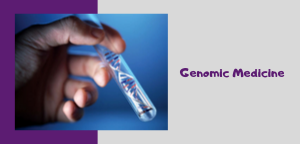
Genomics is the study of genomes, the complete set of DNA within a cell of an organism. More specifically, genomics involves the sequencing and analysis of genomes. Genomics is also concerned with the structure, function, evolution, and mapping of genomes. In contrast to genetics, which refers to the study of individual genes and their roles in inheritance, genomics uses high DNA sequencing and bioinformatics to assemble, and analyze the function and structure of entire genomes. The field also includes studies of intragenomic phenomena such as heterosis, epistasis, pleiotropy and other interactions between loci and alleles within the genome. Advances in genomics have triggered a revolution in systems biology which facilitates the understanding of complex biological systems such as the brain.
Track 17: Geriatrics:

Market analysis
Euroscicon Ltd with immense pleasure invites all the contributors across the globe to the 2nd International conference on Food Security and Sustainability (Food Security 2017) during June 26-27, 2017 at San Diego, USA which includes prompt keynote presentations, Oral talks, Poster presentations and Exhibitions. Euroscicon Ltd organizes 1000+ scientific events inclusive of 600+ Conferences, 500+ Workshops and 200+ Symposiums on various topics of Science & Technology across the globe with support from 1000 more scientific societies and Publishes 500+ Open Access journals which contains over 50000 eminent personalities, reputed scientists as editorial board members.
Food security is often defined in terms of food availability, food access and food utilization. Global agriculture currently produces ample calories and nutrients to provide the entire world's people healthy and productive lives". However, food is not distributed equally to regions, countries, households and individuals. Improved access to food-through increased agricultural productivity and incomes-is essential to meet the food needs of the world's growing population. Successful food security and poverty-oriented programmes not only assist poor rural populations to produce more and diversified products but to produce a surplus that can be marketed and thereby generate income for the purposes of improving quality of life through improved diet and nutrition, investment in productive activity, and as collateral for credit to purchase inputs and/or other supplies to enhance agricultural or non-agricultural enterprise. Agricultural economists have maintained that greater concentration on small farmers leads to faster growth rates of both aggregate economic output and employment .Other analysts argue that production-focused service delivery directed solely at the poor as producers in isolated areas will yield low and probably diminishing returns.
San Diego is a major city in California, on the coast of the Pacific Ocean in Southern California. San Diego is the eighth-largest city in the United States and second-largest in California With an estimated population of 1,394,928 as of July 1, 2015, San Diego is the birthplace of California and is known for its mild year-round climate, natural deep-water harbour, extensive beaches, long association with the United States Navy and recent emergence as a healthcare and biotechnology development center. The city is the seat of San Diego County and is the economic center of the region.
Join us at Global Food Security conference for “Producing sustainable thoughts to bolster the future”. This event has been designed to address scientists, scholars, and different societies supporting food security, Industries and other related scientific communities with different levels of awareness, expertise and proactive solutions to create global impact in this field. Moreover, it will help industrialists to incorporate sustainability into every aspect of Agricultural Industries business model. The Food Security conference will influence industries to maximize their yield and profit through the application of strategic techniques. Additionally, it will reveal the best techniques to promote sustainable agricultural development and achieve a hunger free world by 2050. We look forward to an exciting scientific event in the beautiful city of San Diego, USA.
